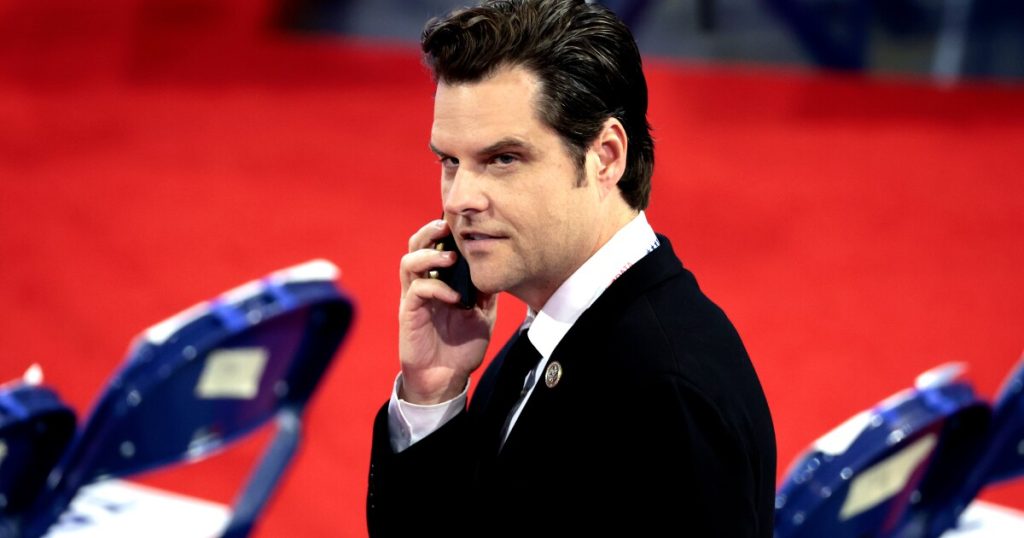Bloomberg News
WASHINGTON — President-elect Donald Trump said he would select Rep. Matt Gaetz, R-Fla., as attorney general, a controversial pick that nonetheless gives
The likelihood of Gaetz being confirmed as head of the Department of Justice is unclear. He resigned from the House on Wednesday, ending a House Ethics Committee investigation into sex trafficking and drug use allegations that began several years ago, which Gaetz has denied.
Regardless of whether Republicans will vote to confirm Gaetz given the allegations against him, his stance as a skeptic of mergers and his previous work investigating banks as part of his House committee assignment shows that the Trump administration is embracing the increasing importance of economic populism in the Republican party in a way Trump didn’t in his first term.
“Certainly you could take from it that Trump is not afraid to nominate someone who has pretty strong antitrust views, and pretty strong views on big business in general,” said Jesse Van Tol, president and CEO of the National Community Reinvestment Coalition.
While Van Tol said that it’s unlikely that Gaetz survives Senate confirmation, the willingness of the Trump administration to pick one of the Republican antitrust movement’s most outspoken supporters speaks volumes.
“It would seem to suggest that the JD Vance wing of the Trump administration is going to have some influence when it comes to questions of corporate consolidation,” he said.
That said, changes at the top of other agencies might portend more closely how the Trump administration will approach bank mergers.
“Banks will be watching the changes in leadership at the [Office of the Comptroller of the Currency and Federal Deposit Insurance Corp.] even more closely,” he said. “This issue is also a top priority for the new Congress, where Republican efforts to place guardrails on the bank M&A review process have been underway for several years.”
Still, Gaetz himself has applauded the antitrust approach of the Justice Department and the Federal Trade Commission over the last four years. He even wrote an amicus brief supporting the FTC’s noncompete ban.
“It remains to be seen whether Mr. Gaetz’s own philosophy would prevail — or if he instead defers to new leadership at the prudential regulators and a White House that has sung a notably different tune,” Skladany said.
Gaetz’s other activities in the House could also show that he’s willing to go after large banking institutions. Republicans on the House Judiciary Committee issued subpoenas to Citibank, demanding information on the degree to which the bank gave law enforcement consumer transaction data after January 6.
“Gaetz took an active role in the Committee’s multiyear investigation into the issue,” Skladany said. “As attorney general, Rep. Gaetz would have an opportunity to shut down many of the lines of communication between the FBI and financial institutions that were established to share intelligence products and identify behavior that may indicate involvement in terrorist activity or money laundering, among other things.”
His positions on other issues could also impact banking. Jaret Seiberg, a financial services and housing policy analyst at TD Cowen, said that because Gaetz has backed legalization of cannabis, banks should be more comfortable working with state-legal cannabis businesses.
“We find it unlikely that Gaetz — given his legalization views — would have DOJ prosecute banks for working with companies that are violating federal law,” he said in a note.
